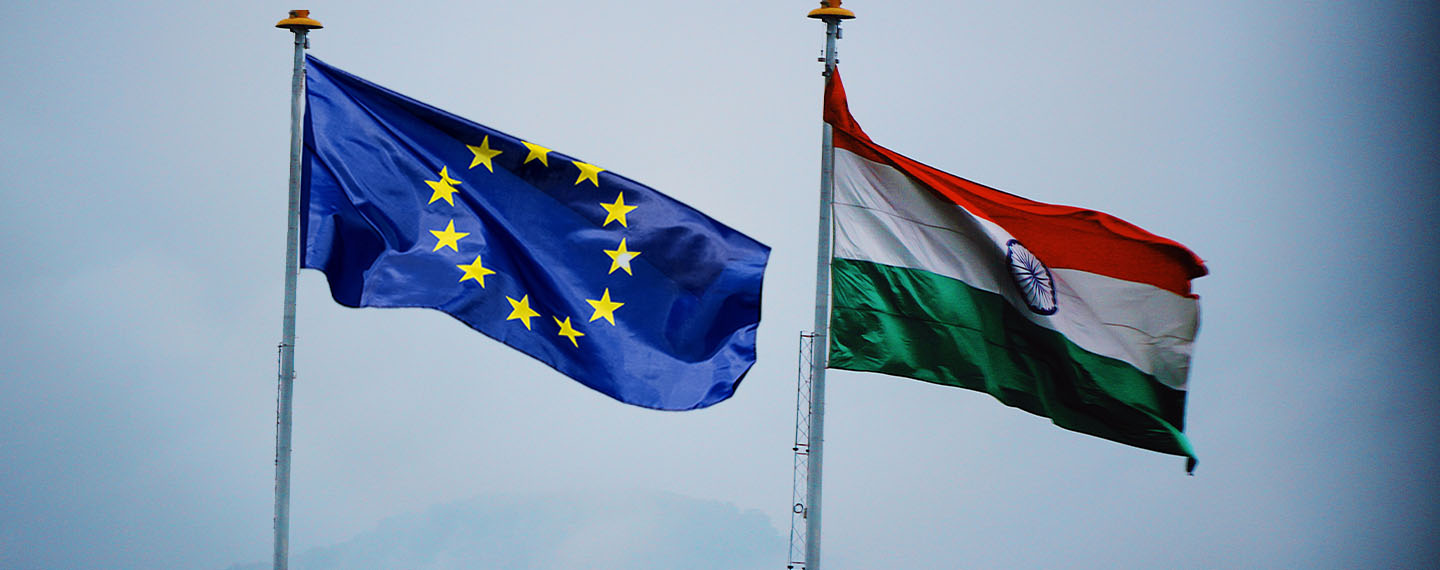The first ministerial meeting of the Trade and Technology Council (TTC) that took place last month marks an important milestone in the development of stronger ties between the EU and India. This forum provides an important conduit to address economic, technological and security concerns from both sides amidst a time of geoeconomic competition. That is why the operative launch of the TTC creates an opportunity to prioritise and institutionalise the EU-India bilateral relationship, paving the way for a future of closer cooperation.
At this first encounter, both sides identified areas of priority and developed strategies for collaborative action with tangible results. In a climate of great power dynamics, with an ongoing war in Ukraine, and a weaponisation of trade and critical technology, the TTC has become an invaluable platform for furthering communication, exposure to each other’s concerns, and establishing joint initiatives at the intersection of trade, technology and security. The global environment makes this effort all the more pertinent.
Brussels and New Delhi delivering together on global challenges
Within the TTC there are three distinct working groups, each devoted to digital governance, green technologies and resilient value chains. When it comes to key digital affairs, the focus is on prioritising projects on Quantum and High-Performance Computing, cooperation in trustworthy Artificial Intelligence, and coordination at the policy-level for the semiconductors sector –in the latter instance, a Memorandum of Understanding is expected to be signed by September of this year–.
As for the green group, they are dedicated to promoting sustainable development through renewable and low-carbon hydrogen, batteries for electric vehicles and common standards in these domains. All of this is in an effort to help the EU and India commit to net-zero emissions by 2050 and 2070 respectively. This shows how both sides agree to deliver together on global challenges, including those that have long been sources of contention.
The third working group, devoted to key trade issues, has an array of focus points, including: agreeing on general principles for cooperation for resilient value chains, resolving trade barriers, sharing information on both sides’ foreign direct investment screening mechanisms, and resolving common global trade issues at the World Trade Organisation level. Of all these areas, and one that was mentioned superficially, India’s stance with regards to the EU’s Carbon Border Adjustment Mechanism stands out as a particularly sensitive issue. New Delhi’s concerns surrounding this scheme could prompt it to create its own, which has the potential to contradict the EU’s. Consequently, this topic remains a delicate challenge for both sides to resolve.
Still, the TTC is a milestone in the EU-India relationship, providing the strategic and political impetus necessary to unlock the potential of the bilateral relationship.
The TTC has the titanic responsibility of delivering in terms of building digital trust, clean energy technologies, and reliable and resilient supply chains for both sides.
This platform should be considered in the context where it stands: it follows the EU-US TTC, being the second partnership of this kind established by the EU and the first one for India. It marks an important stride in the EU’s presence in Asia, in light of its Indo-Pacific Strategy, its Connectivity Partnership with India, and its Digital Partnerships initiatives with Japan, Korea, and Singapore. This format manifests the EU and India’s joint commitment to taking their relationship to the next level.
Economic security at the core of the TTC
The EU-India TTC is part of an economic de-risking paradigm promoted by the EU, as outlined in the recently published Economic Security Strategy. This approach was also reaffirmed at the G7 meeting in Hiroshima last month, which highlighted that ‘economic resilience requires de-risking and diversifying’ vis-à-vis Beijing. New Delhi is also following a policy of reducing its dependence on China and has been taking steps to bolster ‘safety, security, and sovereignty of Indian cyberspace’, particularly since 2020 in the aftermath of a deadly clash between both China and India along their contested borders in the Himalayas. This has included banning Chinese apps and services, increased scrutiny of Chinese firms’ finances and heightening investigations into Chinese investments in India.
Since October 2022 the US has implemented unilateral export controls on Chinese semiconductors, a policy that has been further exacerbated by the agreement between the US, Japan and the Netherlands in January 2023, which sought to restrict exports of certain critical technologies along with the essential components needed to produce them. As such, multinationals like Apple and Samsung have been drawn to India as an alternative location to diversify their operations away from China, thus creating an opportunity for New Delhi to become a major player within the newly emerging technology ecosystems. In this context, it is essential for the EU to build trust and transparency with India, with the TTC serving as the ideal channel to do so.
The initial meeting of the EU-India TTC marks the start of a fruitful collaboration to tackle shared challenges regarding the green and digital transitions. Both sides will assess progress when they meet again at the ministerial level in India in early 2024. In the meantime, we can arguably say that EU-India relations are headed in the right direction, with economic security playing a paramount role in drafting the future of bilateral relations.
A breakthrough on the Free Trade Agreement is now on the horizon, so beware: Brussels and New Delhi are making a bold bet on each other.



